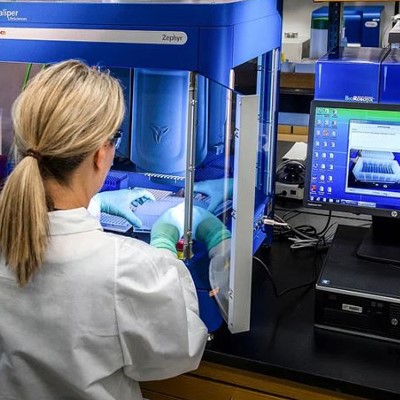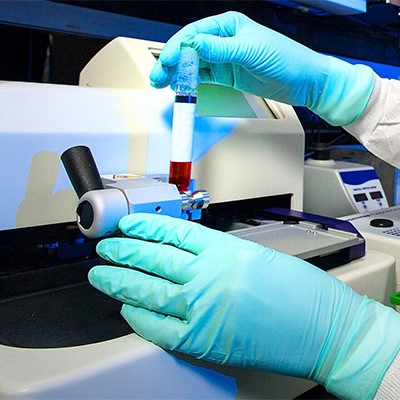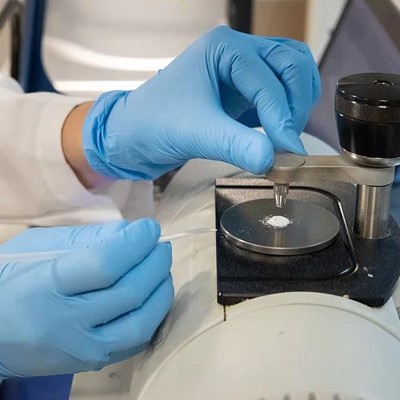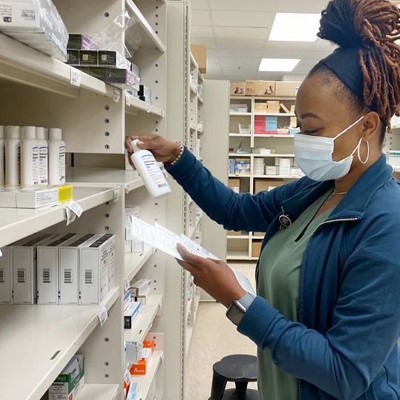
Examining the aftermath of the COVID-19 pandemic, this article delves into how the European pharmaceutical sector is transforming. Key trends include the integration of digital health, heightened focus on vaccine research, robust supply chain resilience, regulatory adaptations, and sustainability initiatives. Prioritizing collaboration and preparedness, the industry charts a course through uncertainties, fostering innovation, and demonstrating a commitment to global health and environmental responsibility in its evolving landscape.

Introduction:
The widespread influence of the COVID-19 pandemic has deeply affected industries worldwide, and the European pharmaceutical sector is no stranger to this impact. This article delves into the lasting repercussions of the pandemic on the European pharmaceutical industry, exploring emerging trends, shifts in consumer behavior, and the industry's adaptations to forthcoming uncertainties.
1. Acceleration of Digital Health Solutions:

The COVID-19 pandemic has acted as a catalyst for the swift integration of digital health solutions into the fabric of healthcare delivery in Europe. With social distancing measures and lockdowns necessitated by the crisis, the industry witnessed an unprecedented surge in the adoption of telemedicine, remote patient monitoring, and digital therapeutics.
Telemedicine has become indispensable, facilitating healthcare providers in delivering essential services remotely to ensure uninterrupted care while minimizing the risk of viral transmission. Concurrently, remote patient monitoring technologies have gained prominence, enabling healthcare professionals to remotely track vital signs and health metrics, thereby improving proactive and personalized care.
Additionally, the pandemic accelerated the acceptance of digital therapeutics, such as mobile apps and virtual interventions, as integral components of treatment plans. These digital health solutions not only addressed immediate challenges posed by the pandemic but also underscored their potential to revolutionize healthcare delivery by improving accessibility, efficiency, and patient outcomes in the post-pandemic landscape.
2. Increased Focus on Vaccine Research and Development:

The pharmaceutical industry underwent a significant pivot in focus due to the COVID-19 pandemic, with an unparalleled prioritization of vaccine research and development. The urgency to address the global health crisis accelerated timelines and encouraged collaboration among pharmaceutical companies, research institutions, and governments.
The industry witnessed an influx of resources and investments dedicated to expediting vaccine development and production. In response to this heightened demand, pharmaceutical companies reevaluated and adapted their strategies, leveraging innovative technologies and agile methodologies. The experience gained from the rapid development of COVID-19 vaccines has prompted a reassessment of traditional vaccine development processes, paving the way for more efficient, scalable, and adaptable approaches.
Looking forward, the industry is actively refining strategies to address future vaccine demands and potential global health threats, recognizing the need for a nimble and collaborative ecosystem to navigate uncertainties and ensure swift responses to emerging infectious diseases.
3. Supply Chain Resilience and Localization:

The COVID-19 pandemic brought to light vulnerabilities in the pharmaceutical supply chain, prompting a critical examination of its resilience. Disruptions, ranging from lockdowns to increased demand for specific medications, underscored the need for a more robust and flexible supply chain. The industry, cognizant of these challenges, has been actively engaged in efforts to enhance resilience.
One notable trend involves a shift towards localized and diversified sourcing. Recognizing the risks associated with overreliance on a single geographic region, pharmaceutical companies are reevaluating and diversifying their suppliers to ensure a more resilient supply chain. Localization efforts involve the establishment of production facilities in closer proximity to key markets, reducing the impact of global disruptions.
Additionally, technology is playing a crucial role in enhancing visibility and traceability within the supply chain, enabling rapid responses to unforeseen challenges. These strategic measures are indicative of a broader industry commitment to fortifying the pharmaceutical supply chain against future uncertainties and ensuring the continuous availability of essential medications.
4. Repurposing Drug Development Strategies:

The COVID-19 pandemic has significantly influenced drug development strategies, with a notable focus on the repurposing of existing drugs for new therapeutic indications. The urgency to find effective treatments for the novel virus prompted researchers and pharmaceutical companies to revisit and repurpose drugs that were already approved or in various stages of development. This approach offered a faster route to identify potential treatments, leveraging existing safety and efficacy data.
The pandemic-induced emphasis on drug repurposing has not only accelerated timelines but has also impacted research and development pipelines. Resources were reallocated, and collaborative efforts were intensified to explore novel applications for established pharmaceuticals. From a regulatory standpoint, the rapid deployment of repurposed drugs required flexibility and adaptability in regulatory processes to facilitate swift approvals.
The experience gained during the pandemic is likely to shape future drug development strategies, encouraging a more dynamic and collaborative approach to leverage existing compounds for emerging therapeutic needs.
5. Regulatory Adaptations and Flexibility:

The COVID-19 pandemic prompted significant changes in regulatory frameworks and approval processes to address the urgent need for pandemic-related treatments and vaccines. Regulatory agencies worldwide demonstrated a heightened level of flexibility and responsiveness, expediting evaluation timelines while maintaining rigorous standards.
Emergency use authorizations and accelerated approval pathways became integral components of the regulatory response, enabling swift access to potential life-saving interventions. These adaptations marked a paradigm shift, showcasing the industry's ability to collaborate with regulatory bodies during crises. While these changes were crucial for addressing immediate health concerns, their implications for future drug development and market access are profound. The experience gained during the pandemic underscores the potential for a more agile and adaptive regulatory environment, fostering innovation and enabling faster responses to emerging health threats.
Striking a balance between speed and safety will likely be a continued focus, shaping the future landscape of drug development and regulatory oversight.
6. Shifting Consumer Behavior:

The era following the pandemic has observed substantial changes in patient and healthcare consumer conduct, characterized by increased awareness of health and well-being. The global health crisis has emphasized the significance of proactive health management, motivating individuals to prioritize preventive measures and embrace healthier lifestyles.
The surge in interest in personalized medicine is clear as consumers seek healthcare solutions tailored to their genetics, lifestyle, and preferences. The pandemic has hastened the incorporation of digital platforms into healthcare decision-making, with telemedicine consultations, health apps, and remote monitoring gaining increased prominence. These digital tools not only provide convenience but also empower individuals to actively participate in their healthcare, fostering a more patient-centric approach.
As consumers become increasingly informed and tech-savvy, the healthcare industry is witnessing a transformation in the dynamics between providers and patients, with a focus on collaborative, data-driven, and personalized care.
7. Collaboration and Partnerships:

The COVID-19 pandemic has spurred unprecedented collaboration within the pharmaceutical industry and beyond, shaping the future landscape of research, development, and distribution. Faced with the urgency of the global health crisis, pharmaceutical companies engaged in extensive partnerships, both within the industry and with external stakeholders.
Collaborative efforts included joint research initiatives, knowledge-sharing, and the pooling of resources to accelerate the development of vaccines and treatments. These collaborations showcased the industry's capacity to unite in the face of a common challenge, transcending competitive boundaries. Moreover, partnerships with governments, non-profit organizations, and international bodies played a pivotal role in ensuring equitable access to treatments and vaccines.
As a result, the pandemic has set a precedent for increased collaboration and information-sharing, with lasting implications for the future. This shift towards a more collaborative ecosystem is expected to continue shaping pharmaceutical research, development, and distribution strategies, fostering innovation, and addressing global health challenges in a more unified manner.
8. Investments in Pandemic Preparedness:

Following the COVID-19 pandemic, the pharmaceutical industry has shifted substantial investments toward technology, research, and infrastructure to improve global readiness for future pandemics. Acknowledging the importance of proactive measures, pharmaceutical companies are investing in advanced technologies like data analytics, artificial intelligence, and genomics to strengthen early detection, rapid response, and vaccine development capabilities. This dedication to pandemic preparedness extends beyond the private sector, with numerous public-private partnerships emerging as essential mechanisms for collaborative research, resource-sharing, and knowledge dissemination.
Governments, too, are actively participating in initiatives aimed at fortifying global health security. Policymakers worldwide are forging partnerships with pharmaceutical entities, supporting research incentives, and contributing to the development of robust healthcare infrastructures.
The combined efforts of industry and governmental stakeholders signal a paradigm shift towards a more proactive, collaborative, and prepared stance against future pandemics, reflecting a commitment to safeguarding global public health.
9. Sustainability and Environmental Impact:

The pharmaceutical industry is undergoing a notable transformation, placing increasing emphasis on sustainability and environmental responsibility. Fueled by heightened awareness of climate change and environmental impact, the sector is proactively addressing its ecological footprint. Initiatives are in progress to diminish the environmental impact associated with pharmaceutical manufacturing and packaging processes.
Companies are increasingly adopting sustainable practices in production, incorporating eco-friendly materials, optimizing energy consumption, and implementing waste reduction measures. Furthermore, there is a discernible trend towards responsible sourcing of raw materials, with a focus on ethical and sustainable supply chain practices. The commitment to sustainability extends to packaging innovations, where recyclable and biodegradable materials are gaining prominence.
The industry's collective effort towards environmental awareness not only aligns with global sustainability goals but also showcases a proactive approach to corporate social responsibility within the pharmaceutical sector. With sustainability integrated into business practices, the industry is positioned to make a positive contribution to both public health and the well-being of the planet.
10. Resilience in the Face of Uncertainty:

In response to the profound uncertainties brought about by the COVID-19 pandemic, the European pharmaceutical industry is actively fortifying its resilience for future challenges. Industry leaders are engaging in comprehensive strategic planning to navigate uncertainties, incorporating lessons learned from the pandemic.
Robust risk mitigation strategies have become a cornerstone, with companies diversifying supply chains, adopting agile manufacturing processes, and investing in advanced technologies to enhance flexibility. Adaptive measures include the acceleration of digital transformation, enabling remote collaboration and data-driven decision-making.
Additionally, the industry is embracing a collaborative approach, forming partnerships to share knowledge, resources, and best practices. These collective efforts aim to ensure the continuous supply of essential medications, accelerate drug development, and bolster global health security. By proactively addressing vulnerabilities and leveraging innovative solutions, the European pharmaceutical industry is positioning itself to navigate future uncertainties with resilience and agility.
Conclusion:
In conclusion, the European pharmaceutical industry is undergoing a transformative journey in the aftermath of the COVID-19 pandemic. From the accelerated integration of digital health solutions to a heightened focus on vaccine research, supply chain resilience, and sustainability, the industry is adapting with resilience and innovation. The shifts in consumer behavior, regulatory flexibility, and unprecedented collaborations emphasize a collective commitment to shaping a future characterized by preparedness, sustainability, and a patient-centric approach.
As the industry fortifies its foundations to face uncertainties, it stands poised to contribute significantly to global health, environmental responsibility, and societal well-being. The lessons learned from the pandemic are driving a new era of agility, collaboration, and proactive strategies that position the European pharmaceutical sector as a vital player in safeguarding public health and advancing medical innovation.